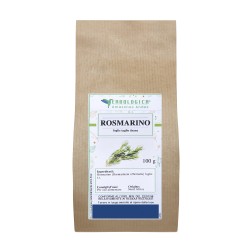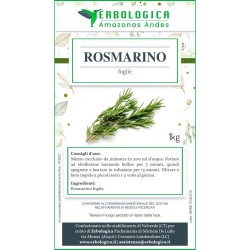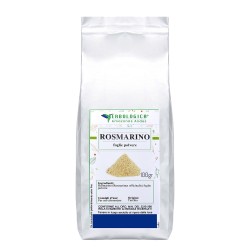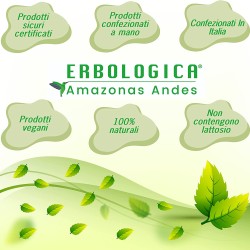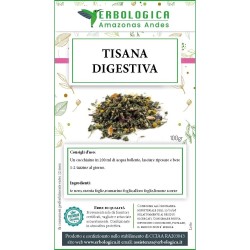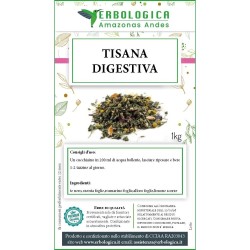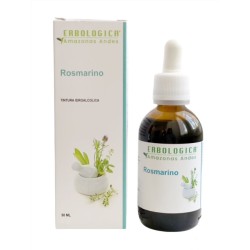
Rosmarino: la pianta del benessere totale tra cucina, salute e tradizione
Il rosmarino è una delle piante aromatiche più antiche e amate del Mediterraneo, utilizzato da secoli come rimedio naturale e come ingrediente indispensabile nelle cucine tradizionali.
La sua forza sta nella grande versatilità: migliora la digestione, sostiene la memoria, dona energia, favorisce un sonno più sereno e arricchisce ricette di ogni tipo.
Una pianta semplice, ma capace di trasformare il benessere quotidiano.
Da sempre considerato simbolo di protezione e vitalità, il rosmarino veniva utilizzato nelle case per purificare l’aria e nei rituali popolari come erba portafortuna.
Ancora oggi è apprezzato per i suoi oli essenziali profumati, ricchi di proprietà benefiche e molto facili da integrare nella vita di tutti i giorni.
Le proprietà che rendono il rosmarino un alleato quotidiano
Il rosmarino contiene cineolo, acido rosmarinico e canfora, sostanze naturali che contribuiscono a sostenere le funzioni cognitive, migliorare la circolazione e stimolare la digestione.
È considerato una delle piante più toniche del mondo erboristico, utile nei momenti di stanchezza mentale, sonnolenza e calo di concentrazione.
I suoi composti aromatici aiutano a lucidare la mente, a ridurre lo stress e a favorire uno stato di benessere generale.
Un aspetto spesso sottovalutato è il suo contributo alla respirazione.
Il profumo balsamico del rosmarino aiuta ad aprire le vie aeree e rende più facile affrontare i cambi di stagione, soprattutto quando si avverte pesantezza al petto o tosse lievi da congestione.
Come prenderlo per ottenere benefici reali
Il rosmarino può essere assunto in diversi modi, ognuno utile per un obiettivo specifico.
Le foglie essiccate in taglio tisana permettono di preparare infusi digestivi perfetti dopo i pasti.
La polvere di rosmarino può essere aggiunta a piatti salati, tisane personalizzate o acqua calda per un’azione tonica più immediata.
La tintura madre è la forma più concentrata ed è utile nei momenti di affaticamento mentale, digestione lenta o tensione nervosa.
Il rosmarino è efficace anche esternamente: impacchi, vapori aromatici e bagni caldi aiutano a rilassare la muscolatura e stimolare la circolazione.
Una pratica semplice ma molto apprezzata consiste nel posizionare alcune foglie di rosmarino vicino al cuscino: il profumo naturale, tenue e aromatico, aiuta a calmare la mente prima di dormire.
Il rosmarino in cucina: da aroma antico a ingrediente essenziale
Nella cucina mediterranea il rosmarino è un protagonista indiscusso.
Il suo aroma pungente e fresco si abbina a piatti di carne, patate, pesce e verdure al forno.
La sua capacità di esaltare i sapori lo rende ideale anche per marinature, salse e oli aromatizzati.
Una ricetta molto utilizzata consiste nell’olio al rosmarino fatto in casa: basta far riposare qualche rametto fresco in olio extravergine per ottenere un condimento ricco e profumato da usare su insalate o pietanze calde.
Un’altra preparazione tradizionale è la tisana rosmarino e limone, perfetta dopo cena.
Le foglie in infusione rilasciano un aroma erbaceo che aiuta lo stomaco a rilassarsi e favorisce un riposo più sereno.
Per chi ama la panificazione, aggiungere rosmarino all’impasto del pane o alle focacce è un modo semplice per dare un aroma speciale e naturale.
Ricette semplici per usarlo ogni giorno
Una tisana digestiva con rosmarino si prepara lasciando in infusione un cucchiaino di foglie essiccate in acqua calda per 8–10 minuti.
Per un effetto più energizzante si può aggiungere una punta di rosmarino in polvere in un bicchiere di acqua tiepida al mattino.
In cucina, una marinatura veloce con olio extravergine, rosmarino e limone è ideale per pollo, pesce e tofu, rendendo ogni piatto più profumato e leggero.
Per favorire il sonno, alcuni preferiscono aggiungere qualche goccia di rosmarino in un diffusore oppure preparare un pediluvio caldo serale.
Le sue note aromatiche unite al calore dell’acqua creano una sensazione di distensione che aiuta a liberare la mente dalle tensioni accumulate.
Prodotti disponibili in Erbologica per usare il rosmarino al meglio
Per integrare questa pianta nella vita quotidiana è utile scegliere forme pratiche e versatili:
Rosmarino foglie taglio tisana
Rosmarino in polvere
Rosmarino tintura madre
Tisana digestiva naturale (che contiene foglie di rosmarino tra gli ingredienti)
Queste varianti permettono di sfruttare le proprietà della pianta in modo personalizzato, in base all’esigenza del momento.
Per chi ama sperimentare il rosmarino anche in cucina, è disponibile la nostra guida su come creare un delizioso liquore al rosmarino fatto in casa, una preparazione aromatica ideale per valorizzare questa pianta in modo originale e tradizionale.
Domande frequenti
Come usare il rosmarino ogni giorno
Si può assumere in tisana, usare come condimento, aggiungere in tintura madre o diffonderne l’aroma in casa.
Aiuta davvero la memoria
Il profumo di rosmarino stimola la concentrazione e rende la mente più attiva grazie ai suoi oli essenziali.
Favorisce il sonno
Sì, se usato in preparazioni rilassanti come bagni aromatici, tisane serali e profumazioni naturali per l’ambiente.
Fa bene allo stomaco
Il rosmarino aiuta la digestione, riduce gonfiore e pesantezza dopo i pasti.
Contenuto esclusivo per erbologica.it – aggiornato a novembre 2025


